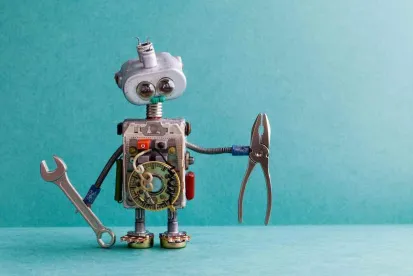Often, a law firm or corporation that embarks on a digital transformation effort views it as project that they will complete in a given time frame, check the box on their task list, and then move on. But going forward this is not how digital transformation will work. The scope and scale of the current phase of digital transformation is far more profound than past phases of this journey. Replacing legal professionals with AI is not as easy as digital transformations of old such as buying a facsimile machine, switching from a typewriter to a word processor, getting an e-mail account on the Internet, or scanning paper files into an online database. Instead, this new era of digital transformation involves the infinitely more complex realm of automating legal thought process. Because the legal frameworks these tools must work within, the client requirements they must accommodate, and the data and facts they need to consider are forever changing, their configuration is not a one-time event. Instead, it will be never-ending and is going to require a whole new workforce of automation/AI configuration specialists who will be a permanent presence in the legal workforce of the future and who will never run out of work to do. To get a mental picture of this new future, you can think of current law practices as equivalent to automobile assembly lines before robotics. Yes, there are tools like hoists, winches and wrenches, and the assembly line brings the automobile to each worker as they perform their respective expertise “on the line”, but humans are still operating the tools to perform the work of assembling a vehicle. Already now and more and more into the future, legal practices will look less like assembly lines of old and more like today’s state of the art assembly lines – that is, robots will be performing the work while the workers look on and supervise the work. Already, companies like Black Hills IP (www.blackhillsip.com) are using AI to flawlessly docket PTO correspondence in the blink of an eye, with a dozen servers now capable of automatically and virtually doing 80% of the daily work of ALL THE US DOCKETING PARALEGALS IN THE UNITED STATES. This is a profound change to this particular segment of the IP profession – as it is eliminating a large number of jobs that were previously believed immune to automation. These types of changes will continue to come as more and more legal work that involves the application of fixed rules to a finite set of data become commonplace. All of this, however, requires a brand new workforce of legal automation specialists that in many cases can be filled by the very personnel displaced by the automation.
The bottom line is this – successful digital transformation is not just buying new tools for the same people to use to do work faster and better. Instead, it is replacing human personnel with legal robots that do thought work and that will bring a profound change in how legal work is performed. This will require a large investment in legal robots and a large number of automation specialists to continuously tend to and program those robots.



 />i
/>i

